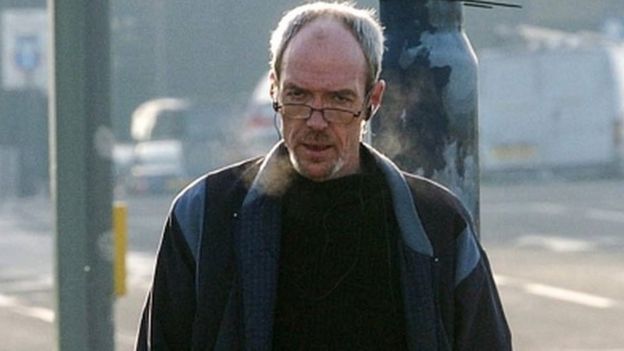WT Special Report(wp/bbc):::
The government "cannot exclude" a criminal investigation into leaks from a National Security Council meeting.
Culture Secretary Jeremy Wright condemned leaks to the Daily Telegraph from the meeting about using Huawei technology for the UK's 5G network.
Ex-Defence Secretary Sir Michael Fallon said the matter was "too serious" for a standard leaks inquiry and said the police must be called in.
The National Security Council is made up of senior cabinet ministers.
Chaired by the prime minister, it meets weekly to discuss government objectives concerning national security - with other ministers, officials, and senior figures from the armed forces and intelligence invited when needed.
Former National Security Adviser Lord Ricketts told the BBC it was the first time anyone had committed a major leak from the NSC since its inception in 2010.
He said he was in favour of a full inquiry, possibly involving MI5 investigators, "to make the culprit feel very uncomfortable".
And Sir Michael, who was defence secretary between 2014 and 2017, said everyone who was at the meeting should be subject to a "proper Scotland Yard investigation", saying the leak was "completely shocking" and it was an "offence to divulge secret information from the most secret of all government bodies, which is the National Security Council".
"It needs to be stopped and the only way to stop it is to investigate it thoroughly," he said.
BBC security correspondent Gordon Corera said he understood an inquiry was being carried out by the government into the leak.
Theresa May's official spokesman declined to confirm this, but said: "The prime minister is clear that the protection of information on matters of national security is of the highest importance."
Earlier Jeremy Wright told MPs: "We cannot exclude the possibility of a criminal investigation here and everyone will want to take seriously that suggestion."
He said that security officials "need to feel they can give advice to ministers, which ministers will treat seriously and keep private, and if they do not feel that they will not give us that advice and government will be worse as a result".
Former Attorney General Dominic Grieve said if a minister was responsible "they should be sacked immediately". The Conservative MP said there had been "some posturing around on a whole range of issues" and members of his party "preparing themselves for leadership bids".
But he said some ministers had behaved "outrageously badly" due to the breakdown of collective responsibility in cabinet.
The members of the National Security Council include the prime minister, home secretary, foreign secretary, and defence secretary, among others.
What was the leak about?
Ministers were deciding whether or not to allow equipment from Huawei to be used to construct the new 5G data network - a decision that could have long-term consequences for national security.
There are fears that giving the Chinese company a key role could open the UK network to espionage.
But Huawei has denied there is any risk of spying or sabotage, or that it is controlled by the Chinese government.
According to the Daily Telegraph, Huawei would be allowed to help build the "non-core" parts of the UK's 5G network, such as antennas.
There has been no formal confirmation of Huawei's role in the 5G network and No 10 said a final decision would be made at the end of spring.
The leak from Tuesday's National Security Committee meeting is both serious and unprecedented.
Lord Ricketts, a former National Security Adviser in David Cameron's government, confirmed there had never before been a "major, deliberate leak" immediately following an NSC meeting.
He is in favour of a formal investigation while others go further, calling for a criminal inquiry involving the police and MI5.
So, just why is it so serious?
Because the NSC is supposed to be the one place in Whitehall where highly sensitive secret intelligence can be openly shared with ministers.
Those present will have signed the Official Secrets Act, clearing them to handle secret intelligence.
Breaking that "circle of trust" risks undermining the work of Britain's three intelligence agencies - GCHQ, MI5 and MI6 - potentially putting agents in danger.
Historically, leak inquiries rarely find the culprit, although in this case there may be an electronic trail that would expose the leaker.
What they will do, however, says Lord Ricketts, is to put the fear of God up the culprit, thereby discouraging them from ever doing it again.

Why are people worried about Huawei?
There have been warnings in the US since at least 2012 that equipment from Huawei poses a security threat.
Last year a UK government report said it could provide "only limited assurance" that the company's infrastructure did not pose a threat to national security.
Now the US wants its allies in the "Five Eyes" intelligence grouping - the UK, Canada, Australia and New Zealand - to exclude the company.
Australia last year blocked its networks from using Huawei's 5G gear.
What is 5G?
5G is the next (fifth) generation of mobile internet connectivity, promising much faster data download and upload speeds, wider coverage and more stable connections.
Existing spectrum bands are becoming congested, leading to breakdowns - particularly when many people in one area are trying to access services at the same time.
5G is also much better at handling thousands of devices simultaneously, from phones to equipment sensors, video cameras to smart street lights.
Current 4G mobile networks can offer speeds of about 45mbps (megabits per second) on average. Experts say 5G - which is starting to be introduced in the UK this year - could achieve browsing and downloads up to 20 times faster.

